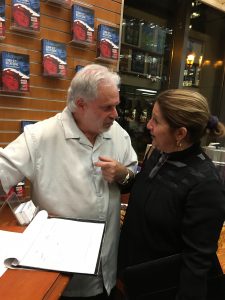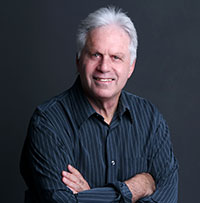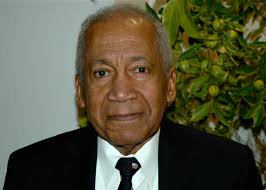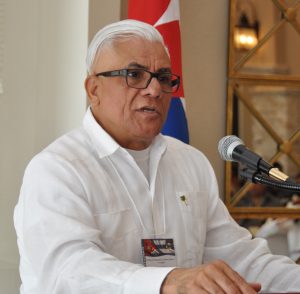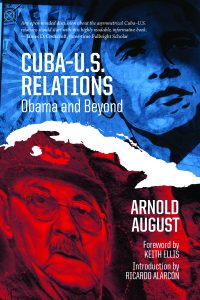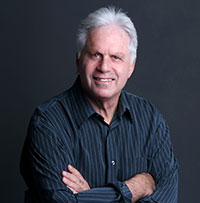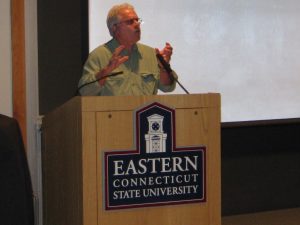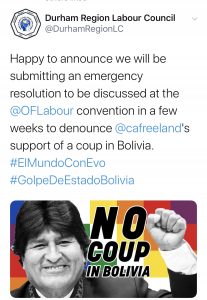
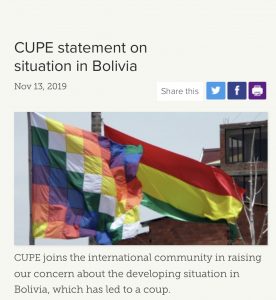
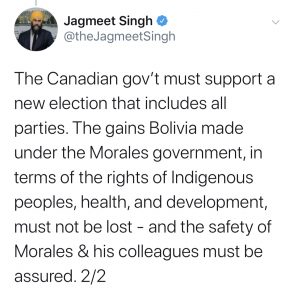
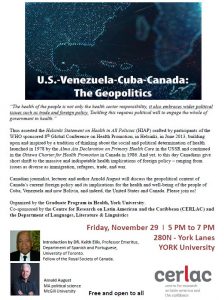
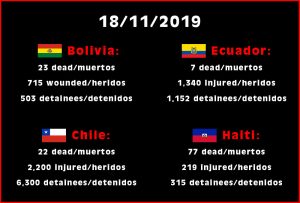
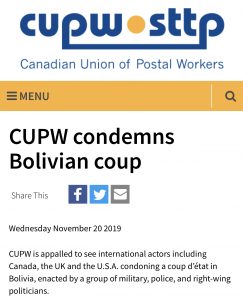
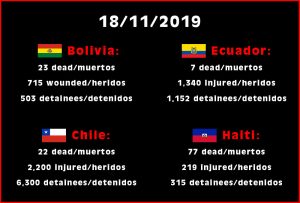
Everyone welcome, Free! Toronto, York University, Arnold August International Speaking tour stop, Friday, November 29, 7 PM. Evo and Bolivia impacts Canadian Politics & Trade Union Movement.
The NDP leader is in favour of new Bolivian elections. However, Evo was already elected and furthermore the US- backed coup leader in Bolivia declared that Evo will be arrested if he attempts to return to Bolivia!
Yet, some NDP MPs support Evo as president. Moreover, the CUPE and CUPW unions have issued clear statements. Some local union labour Councils are sponsoring a special resolution for the upcoming OFL Congress. Bolivian unions are putting their life on the line to demand the return of Evo as president, some of them assassinated by the Pro-Trump puppet regime.
NDP can make history, and Canadians proud, by taking a stand in support of Evo.
The pro-Trump Trudeau government is backing dictatorships in Ecuador, Chile, Bolivia and Haïti.
Whither Canadian foreign policy?
Let us discuss.
U.S.-Venezuela-Cuba-Canada: The Geopolitics. Talk by Arnold August.
Friday, November 29, 2019
York Lanes 280N – YORK University
5:00pm – 7:00 pm
Free and open to all.
“The health of the people is not only the health sector responsibility, it also embraces wider political issues such as trade and foreign policy. Tackling this requires political will to engage the whole of government in health.”
Thus asserted the Helsinki Statement on Health in All Policies (HIAP) crafted by participants of the WHO sponsored 8th Global Conference on Health Promotion, in Helsinki, in June 2013, building upon and inspired by a tradition of thinking about the social and political determination of health launched in 1978 by the Alma Ata Declaration on Primary Health Care in the USSR and continued in the Ottawa Charter for Health Promotion in Canada in 1986.
And yet, to this day Canadians give short shrift to the massive and indisputable health implications of foreign policy – ranging from issues as diverse as immigration, refugees, trade, and war.
Canadian journalist, lecturer and author Arnold August will discuss the geopolitical context of Canada’s current foreign policy and its implications for the health and well-being of the people of Cuba, Venezuela and now Bolivia, and indeed, the United States and Canada. Please join us!
Introduction by: Dr. Keith Ellis, Professor Emeritus, Department of Spanish and Portuguese. University of Toronto.
Organized by the Graduate Program in Health, York University.
Co-sponsored by the Centre for Research on Latin American and the Caribbean (CERLAC) and the Department of Languages, Literature & Linguistics
Further Information:
https://cerlac.info.yorku.ca/event/4178/?instance_id=177



